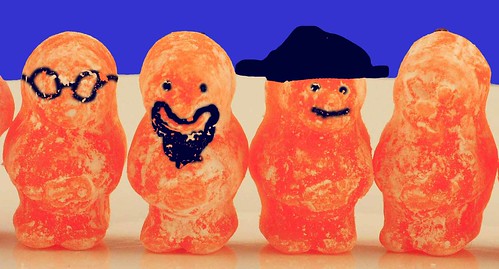That is that one speaker, (usually me because I am also taking notes) misunderstands something the first speaker says. I find that in reviewing interviews, that even where I reply inappropriately and it is clear I have misunderstood, the first speaker does not correct me. Out of four errors I made in listening, none were corrected. Instread, the first speaker finds a way of making me understand by re-capping later and re-emphasizing in some way. This is not a new observation, and has been observed as a common phenmenon amongst speakers. We susually glide over hiccups and smooth them out.
(It is of course just one of the many things linguists have been able to observe and learn with technology. Nevertheless I felt surprised to observe it in my interviews. )
It was fascinating to see how the people I was interviewing showed great conversational dexterity in the manner they repaired the conversation; they avoided correcting me (they would have felt this was rude, I imagine - or maybe even thought they were not being clear enough.) And then they later, unobtrusively, wove in the correct information as a kind of 'by the way' mentioning.
Fascinating stuff, which reflects a good deal of cultural knowledge as well as linguistic skill.
I have noticed on Flickr how incredibly careful people sometimes are when they leave comments on photos or on blogs. (look at this polite little exchange across the globe.) Some people are so tactful and diplomatic and gushingly kind it can make you feel ill (not to me in fact but I have observed this and do not wish to do any pointing here.
But I understand that as there are so many cues missing online - so many visual and auditory cues and clues that are unavailable. This means that people tend to careful - (there are exceptions of course). I have in the past though I have offended people - and onlt realised later - but then not been sure. As time has gone on, I have secured some more certain relationships online and this has taken a while - and on occasion meat space contact. But the acts of negotiation and repair are different in opnline spaces and I think we have developed tactics to compensate. In face to face meetings we know what is valued - listening to each other, trying to find agreement, eye contact, standing the right distance apart, even echoing each other etc etc.
I am wondering whether things like memes and other types of in-joke, are part of the repertoire of multimodal tactics we use to define the cultural landscape, a new landscape that does not require some of the other cultural cues. I think that some memes work right across the web, while others are more locaclised. In addition to memes helping create a shard social/cultural landscape I think the games within flickr groups and the ways in which we set out rules for each other, allow a secure space where we all start afresh with new parameters for behaving.
So, on the web we tend to be more articulate about how to behave; off line we tend to show belongingness in more subtle ways. But online, just as off line, when we get to know people we can be more experimental as we become surer of the cultural rules. These rules are partly established explicitly, and partly through practice.
I was prompted to some of these ideas by reading page 23 of this, which I mentioned last week.
When I came back this was the picture that befell my eyes.
There is an identity parade. Can you see who dunnit?





3 comments:
It's the one who is trying to remain anonymous, I think.
Brill photos.
I think that too Digi. But how do we prove it.
I shall ask Edward to sniff it out.
Post a Comment